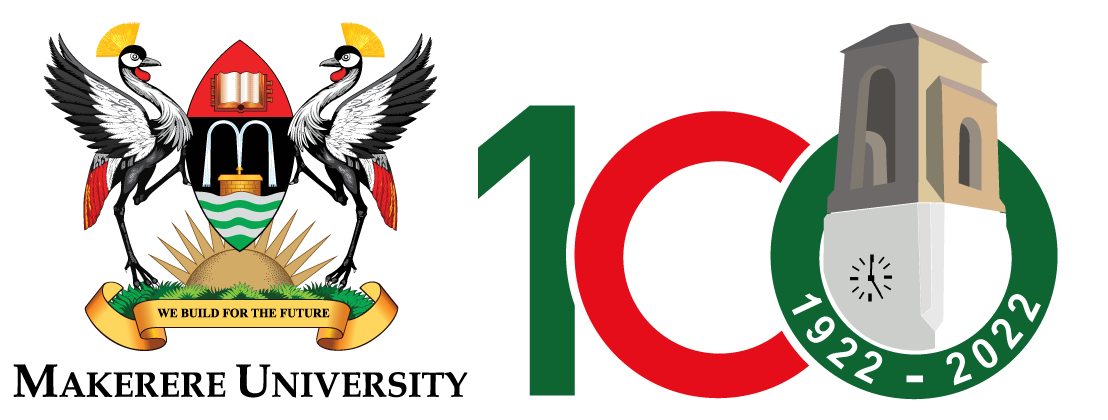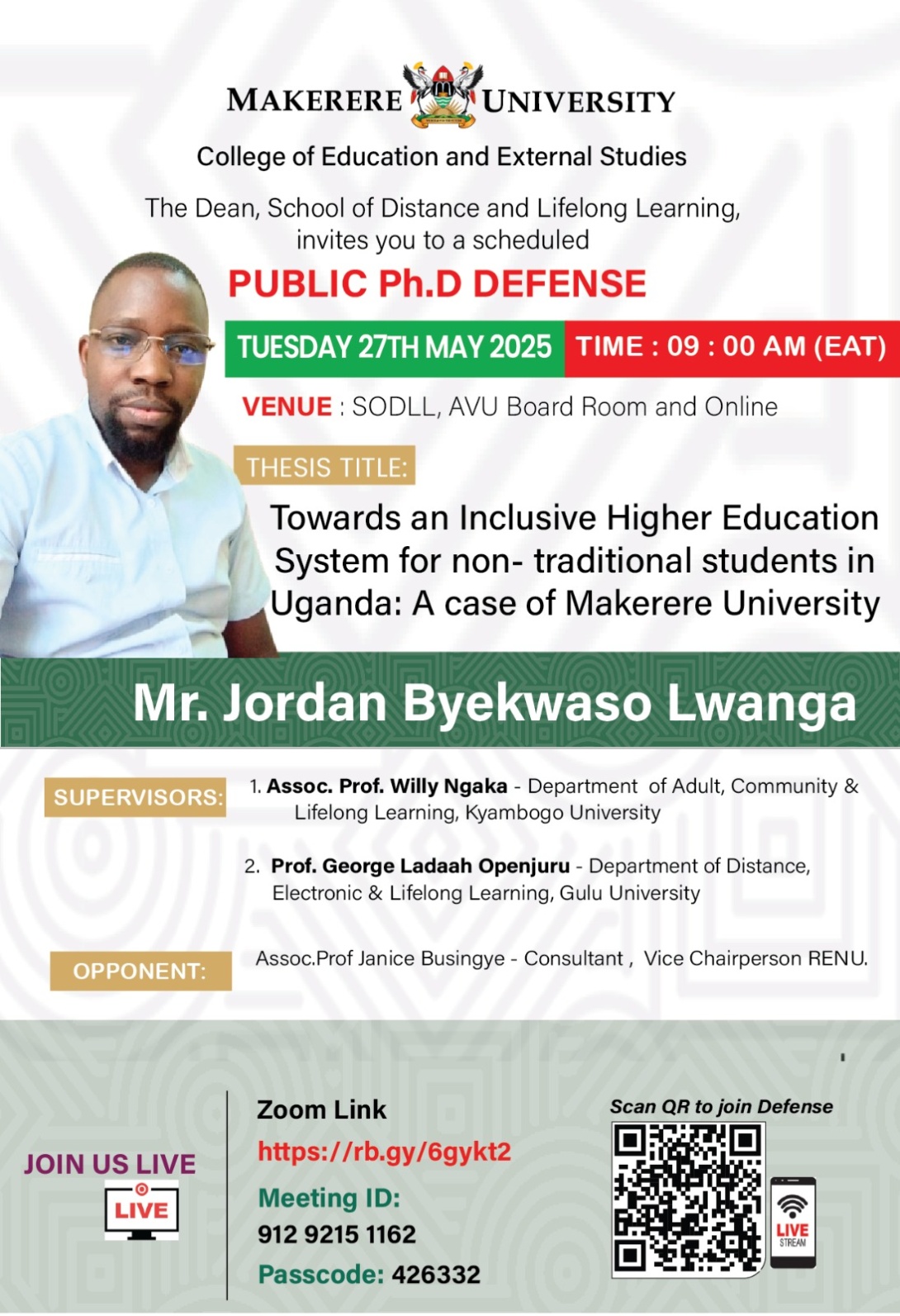TOPIC:
Towards an Inclusive Higher Education System for Non-Traditional students in Uganda: A case of Makerere university
Abstract
In this qualitative case study, I explored the learning aspirations and participation experiences of Non-Traditional Students (NTSs) at Makerere University with the aim of building an inclusive higher education (HE) system that supports a diverse student body within the changing work and social realities. Drawing from the social justice theory, the study focused on analysing the purpose of widening university access routes; the central meaning of NTSs’ decision to return to HE; teaching and learning strategies; and opportunities for re-aligning the HE mission and provision. Data were collected from NTSs, university managers and mature age coaches through interviews and focus group discussions, and analysed thematically. The major study findings revealed that: (i) widening access routes aims to expand and legitimise access and participation opportunities to participants from non-traditional backgrounds; (ii) NTSs’ decision to return to class meant renewed hope for self-reorganisation and a bridge for linking personal aspirations; (iii) a gradual shift from using teacher-centred to more learner-centred instructional approaches; and (iv) their recruitment invites institutions to use their participation and transition experiences to explore what learners’ diversity means to inclusive support and service delivery. These findings suggest that a system that was not historically designed for NTSs cannot be responsive to their unique learning needs due to the system’s rigidities. Consequently, universities that focus on recruiting NTSs need to explore how HE should be organised to serve the learning needs and support the aspirations of the different generations of students. Conclusively, the recruitment of NTSs in HE is an issue of diversity and intergenerational fairness, which demonstrates the feasibility of boosting intergenerational learning and capacity. These students have an estimate of what to achieve that an institution should explore to re-align its mission, policy and practice to these learners' uniqueness. Failure to utilise this opening means that NTSs will have to traverse an inadequately prepared institutional environment, and their participation might be blindly defined, considered, and judged as a luxury amidst the changing times. Hence, the study recommends that efforts to build an inclusive HE system should, among other things, focus on establishing an inclusion steering committee that can be used to undertake learners’ analysis and envision plans for a strategic shift towards inclusive-inspired policy, practice and support services.
Supervisors:
Assoc. Prof. Willy Ngaka - Department. Of Adult, Community and Lifelong Learning Kyambogo University
Prof. George Ladaah Openjuru - Department. Of Adult, Community and Lifelong Learning Gulu University
Defense Chair:
Assoc. Prof. Janice Busingye – Consultant & Vice Chairperson RENU

